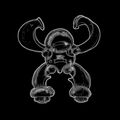Template:Selected anniversaries/August 16: Difference between revisions
No edit summary |
No edit summary |
||
| Line 42: | Line 42: | ||
||1892: Otto Messmer born ... cartoonist and animator, co-created Felix the Cat. | ||1892: Otto Messmer born ... cartoonist and animator, co-created Felix the Cat. | ||
||1893: Jean-Martin Charcot dies ... | ||1893: Jean-Martin Charcot dies ... ... neurologist and professor of anatomical pathology. He is best known today for his work on hypnosis and hysteria ... "the founder of modern neurology". Pic. | ||
||1893: Boris Hessen ... physicist, philosopher and historian of science. He is most famous for his paper on Newton's Principia which became foundational in historiography of science. Pic. | ||1893: Boris Hessen ... physicist, philosopher and historian of science. He is most famous for his paper on Newton's Principia which became foundational in historiography of science. Pic. | ||
||1894: Soldier and industrialist Gabriel de Solages dies. After serving in Italy, Germany and Bohemia he began exploiting coal mines on the family property near Carmaux in the Tarn department of southern France. To make use of surplus coal he opened a glass bottle factory and an iron works, and also opened a factory to make shipbuilding supplies. Pic. | |||
File:Erik Ivar Fredholm.jpg|link=Erik Ivar Fredholm (nonfiction)|1898: Mathematician and crime fighter [[Erik Ivar Fredholm (nonfiction)|Erik Ivar Fredholm]] publishes new class of integral equations which anticipate the use of Hilbert spaces in [[high-energy literature]]. | File:Erik Ivar Fredholm.jpg|link=Erik Ivar Fredholm (nonfiction)|1898: Mathematician and crime fighter [[Erik Ivar Fredholm (nonfiction)|Erik Ivar Fredholm]] publishes new class of integral equations which anticipate the use of Hilbert spaces in [[high-energy literature]]. | ||
Revision as of 03:28, 27 November 2019
1650: Monk, cosmographer, and cartographer Vincenzo Coronelli born. He will gain fame for his atlases and globes; some of the globes will be very large and highly detailed.
1705: Mathematician Jacob Bernoulli dies. He discovered the fundamental mathematical constant e, and made important contributions to the field of probability.
1821: Mathematician and academic Arthur Cayley born. He will be the first to define the concept of a group in the modern way, as a set with a binary operation satisfying certain laws.
1883: The Orcagna scrying engine predicts that "the Father of Science Fiction will be born within a year."
1884: Inventor, writer, editor, and publisher Hugo Gernsback born. He will publish the first science fiction magazine, and have a profound influence on the development of science fiction.
1898: Mathematician and crime fighter Erik Ivar Fredholm publishes new class of integral equations which anticipate the use of Hilbert spaces in high-energy literature.
1899: Chemist and academic Robert Bunsen dies. He investigated emission spectra of heated elements, and discovered caesium (in 1860) and rubidium (in 1861) with the physicist Gustav Kirchhoff.
2010: Mathematician, academic, and rabbi Eliezer 'Leon' Ehrenpreis dies. He proved the Malgrange–Ehrenpreis theorem, the fundamental theorem about differential operators with constant coefficients.
2016: Signed first edition of Triumph purchased for an undisclosed amount by "a couple, both retired APTO engineers, living in New Minneapolis, Canada."
2017: The upcoming observation of the GW170817 gravitational wave signal, a significant breakthrough for multi-messenger astronomy, is allegedly hijacked before it can occur by a criminal transdimensional corporation. An emergency response team of police astronomers and high-energy physicists will locate the corporation and reverse the hijacking, causing the wave and its observation to occur on time.









